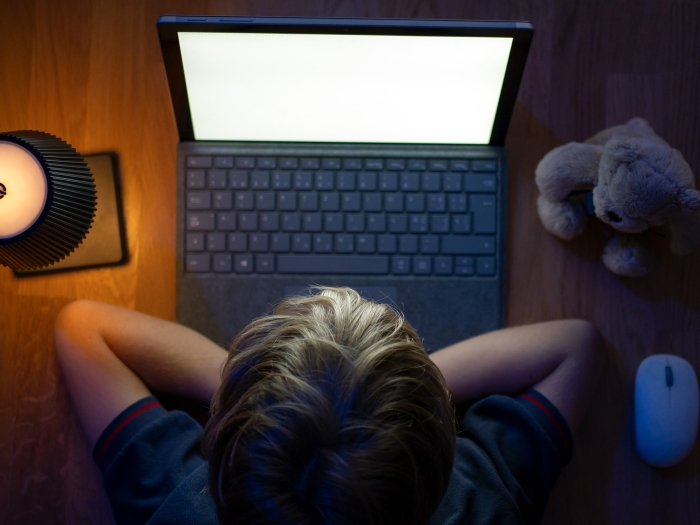Some might associate the phrase with extravagance, but beauty sleep is real — and so are the benefits.
7:00 AM
Author |

Do people ever say that you look tired?
When you look in the mirror, does that person look refreshed — or exhausted?
MORE FROM THE HEALTH BLOG: Subscribe to our weekly newsletter
A likely culprit in either scenario: the amount of sleep you're getting each night.
After all, "How you take care of your body on the inside is reflected on the outside," says Helena M. Schotland, M.D., a sleep disorders specialist at the University of Michigan. "I think of it as beauty from within."
The notion of "beauty sleep," then, isn't just a catchphrase.
And the health benefits (not to mention the cosmetic ones) are real.
Schotland and U-M dermatologist Erica I. Stevens, M.D., spoke more about the necessity of solid shut-eye.
How do you define "beauty sleep"?
Schotland: I would say it's good quality of sleep and good quantity of sleep. So it's getting as much refreshing sleep as you need so that you wake up in the morning feeling ready to go — and keep yourself going throughout the day without getting tired or sleepy.
Stevens: I agree, and I'd add that it's a healthy routine that helps people look better.
Why is proper sleep important?
Stevens: What you look like on the outside is a huge cue to the rest of the world. If you have the appearance of being too tired, it may interfere with other aspects of your life, such as how people perceive how you're doing on your job.
Schotland: It's also better for the functioning of your brain and your health in general to get more sleep, as well as for the health of your skin.
Does research support this theory?
Schotland: Yes. Ronald D. Chervin, M.D., M.S., F.A.A.S.M., did some interesting research in this area. Published in the Journal of Clinical Sleep Medicine, the study found that people with obstructive sleep apnea looked more alert, more youthful and more attractive after using their positive airway pressure machines consistently for at least two months.
SEE ALSO: How to Use Bedroom Lighting to Improve Sleep Quality
Stevens: There are several small studies showing that not enough sleep can lead to increased signs of fatigue and aging. One study showed that poor sleepers had increased skin-aging scores, including more fine lines, slackening of skin and reduced elasticity.
There were also a couple of studies about the skin barrier — the protective outer coating that prevents loss of body water. Poor sleepers had more loss of water throughout their skin than good sleepers. This can possibly be related to other changes, such as fine lines, wrinkling, sagging and puffiness.
What kinds of things can affect beauty sleep?
Schotland: A lot of times we talk about insufficient sleep, but almost everybody at some point in his or her life deals with insomnia — either trouble falling asleep or trouble staying asleep. When people are worried about things going on in their lives, that can lead to issues with insomnia. Resolving your sleep condition will help you look and feel better.
Stevens: We do have to keep in mind that our skin will change as we age. But there are factors we can control by eliminating them, such as chronic sun exposure and smoking. Now, research is showing us that getting enough sleep may be a factor that we can control to make ourselves look and feel better.
What other benefits come from getting enough rest?
Stevens: A lot of people seek cosmetic treatment because they want to look less tired. They are spending hundreds if not thousands of dollars on Botox or filler for wrinkles or fine lines. But if we just get a better night's sleep, that may prevent us from getting such skin changes to begin with — or from worsening them. And the best news is that sleep is free!
Schotland: At times, we all burn the candle at both ends, but if you know you're getting a good night's sleep and you're still having problems, don't ignore it. Get that checked out.

Explore a variety of health care news & stories by visiting the Health Lab home page for more articles.

Department of Communication at Michigan Medicine
Want top health & research news weekly? Sign up for Health Lab’s newsletters today!





